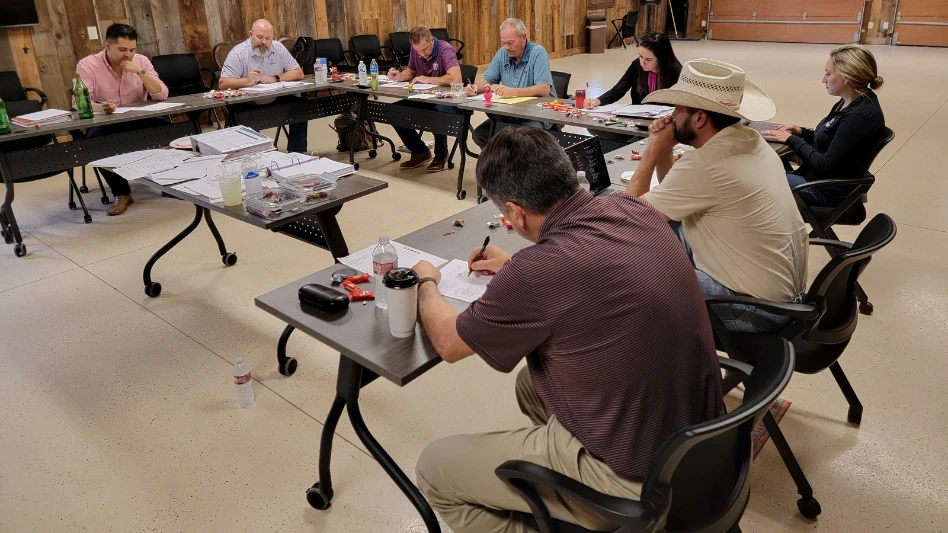In New York state, the green industry could soon be the latest target of an increasingly active anti-pesticide lobby. A "universal notification of abutters" bill is currently working its way through the New York state Senate that would require anyone applying pesticides to notify those bordering the property within 48-hours prior to application.
If passed, the "Neighbor Notification" bill, which has already been approved in the state assembly, will have a dramatic impact on the applicator community, adding a substantial administrative and financial burden, said Fred Langley, who follows state issues for Responsible Industry for a Sound Environment (RISE), Washington, D.C.
This bill would place an unfair burden on applicators, agreed Don Burton, president of the New York State Lawn Care Association. "Can you imagine the complexity of trying to get addresses, especially in densely populated neighborhoods with multiple-occupant dwelling units? That’s the whole neighborhood," he said.
The proposed notification system would likely create a false sense of emergency, Langley pointed out. "If people are getting a barrage of notifications, they will think that something is wrong," he said.
The bill could have an especially detrimental effect on the tree service industry, according to Burton. With components such as unrealistic spraying limitations, "the legislation is so onerous that it precludes the possibility of arborists even being able to comply," he said. "Should the law go through, compliance will just be too expensive."
RISE is currently raising awareness and understanding about the bill’s implications, Langley said. State industry associations are also lobbying Gov. George Pataki’s office, circulating petitions and contacting state representatives to convey their concern about the bill. "If there’s any hope of modification, it’s a long shot, but the hope is there," Burton said.
A BETTER WAY. Instead of getting everyone involved, especially those who could care less if someone is treating neighboring lawns or trees, applicator allies and others are proposing a statewide registry as part of the bill. Homeowners who want to know about pesticide applications in their neighborhoods would be on a list and then notified accordingly.
For applicators, this database would substantially reduce the administrative burden a notification bill would impose. There are already 11 states with registries and they work well, according to Langley. "These registries have also shown that very few people are willing to sign up for these," said Langley. "Essentially, most people don’t care."
IN RELATED NEWS…This year, pesticide use in and around schools will be a hot topic in communities across the country. A recent U.S. General Accounting Office report on pesticide usage in schools has given national exposure to the often emotionally charged child protection issue. In this election year, public interest research groups also are focused on the issue. "Who wants to be against protecting the children?" Langley asked wryly. "This is a vehicle for them to pass legislation that phases out pesticide use or severely limits use of pesticides both indoors and outdoors."
Related legislation has been introduced in a number of states. In Massachusetts, there are several bills pending in the legislature as well as a ballot measure filed by a public research interest group that would dictate to schools exactly how, if at all, they can control pests. "They are tying the hands of pest control professionals," Langley said. The bill also would limit the pest control materials schools can use and fine them upwards of $5,000 for failing to comply.
In terms of science, this bill creates a "lock in time," failing to accommodate new technologies or methods of delivery, and completely ignores the issue of resistance management, according to Langley. "The legislation is pretty short sighted," he said.
RISE is currently working with a coalition of organizations in Massachusetts to see if the bill can be amended to show more consideration and evenhandedness toward the complex issue of pest control. "Our concern is that the measure has the potential to put children and staff at risk because is it limiting," Langley said.

Explore the March 2000 Issue
Check out more from this issue and find your next story to read.
Latest from Lawn & Landscape
- LMN partners with Attentive.ai
- Get to know the generations working for you
- Addressing addiction in landscaping
- Fairway expands national footprint with 6 acquisitions
- Graze Robotics opens new headquarters in Plano, Texas
- Addiction in the green industry
- Kress earns Sourcewell approval
- The best laid plans





